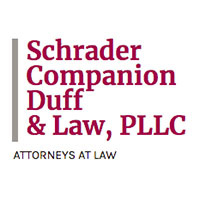Paden City Divorce & Family Law Lawyer, West Virginia
Sponsored Law Firm
-
 x
x

Click For More Info:
-
William C. Brewer & Associates, PLLC
265 High Street 4th Floor Morgantown, WV 26505» view mapDivorce & Family Law Comprehensive Representation
William C. Brewer has put together an experienced and highly respected team of legal professionals who provide comprehensive legal services for anyone in need.
800-748-3560
Sandra K. Law
✓ VERIFIEDEmployment, Accident & Injury, Estate, Workers' Compensation, Divorce & Family Law
Schrader Companion Duff & Law, PLLC., has a distinguished history of providing exceptional legal services for almost a century to clients in litigatio... (more)
Joseph R. Canestraro
Family Law, Wills & Probate, Animal Bite, Child Support
Status: In Good Standing
Elmer E. Bowser
International Other, Family Law, Bankruptcy & Debt, Personal Injury
Status: In Good Standing Licensed: 51 Years
Carolyn G. Flannery
Real Estate, Government, Family Law, Personal Injury
Status: In Good Standing Licensed: 31 Years
Justin Ernest Craft
Traffic, Lawsuit & Dispute, Wrongful Termination, Divorce & Family Law
Status: In Good Standing Licensed: 12 Years
Timothy E. Haught
Real Estate, Divorce & Family Law, Criminal, Accident & Injury
Status: In Good Standing Licensed: 34 Years
Thomas Phillip Taggart
Communication & Media Law, Industry Specialties, Environmental Law, Family Law
Status: In Good Standing Licensed: 51 Years
M. Paul Marteney
Accident & Injury, Bankruptcy, Divorce & Family Law, Lawsuit & Dispute, Real Estate
Status: In Good Standing Licensed: 28 Years
Christian Edward Turak
Motor Vehicle, Estate, Employment, Child Custody
Status: In Good Standing Licensed: 23 Years
 William Brewer Morgantown, WV
William Brewer Morgantown, WV Practice AreasExpertise
Practice AreasExpertise

